#include "slu_ddefs.h"#include "colamd.h"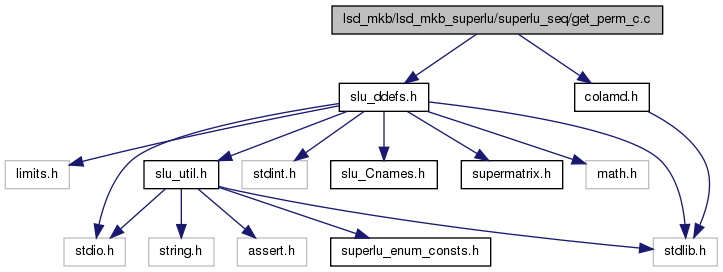
Functions | |
| int | genmmd_ (int *, int *, int *, int *, int *, int *, int *, int *, int *, int *, int *, int *) |
| void | get_colamd (const int m, const int n, const int nnz, int *colptr, int *rowind, int *perm_c) |
| void | getata (const int m, const int n, const int nz, int *colptr, int *rowind, int *atanz, int **ata_colptr, int **ata_rowind) |
| void | at_plus_a (const int n, const int nz, int *colptr, int *rowind, int *bnz, int **b_colptr, int **b_rowind) |
| void | get_perm_c (int ispec, SuperMatrix *A, int *perm_c) |
| void at_plus_a | ( | const int | n, | |
| const int | nz, | |||
| int * | colptr, | |||
| int * | rowind, | |||
| int * | bnz, | |||
| int ** | b_colptr, | |||
| int ** | b_rowind | |||
| ) |
Purpose =======
Form the structure of A'+A. A is an n-by-n matrix in column oriented format represented by (colptr, rowind). The output A'+A is in column oriented format (symmetrically, also row oriented), represented by (b_colptr, b_rowind).
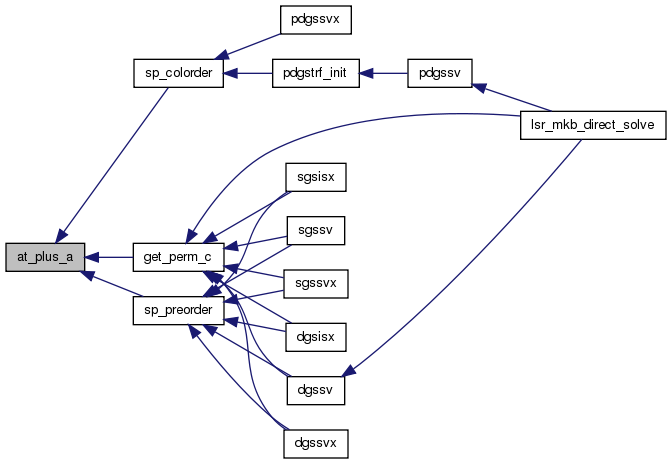
| int genmmd_ | ( | int * | , | |
| int * | , | |||
| int * | , | |||
| int * | , | |||
| int * | , | |||
| int * | , | |||
| int * | , | |||
| int * | , | |||
| int * | , | |||
| int * | , | |||
| int * | , | |||
| int * | ||||
| ) |
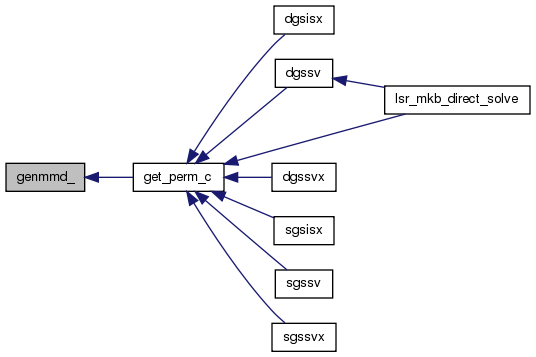
| void get_colamd | ( | const int | m, | |
| const int | n, | |||
| const int | nnz, | |||
| int * | colptr, | |||
| int * | rowind, | |||
| int * | perm_c | |||
| ) |
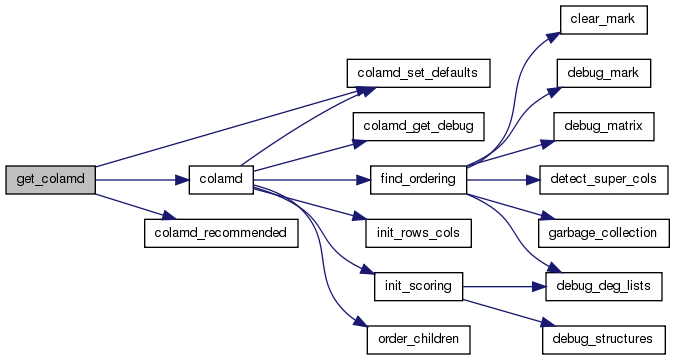
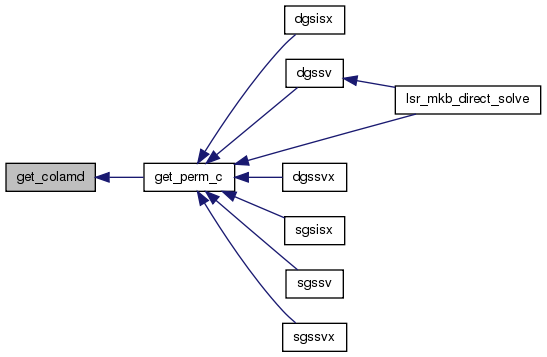
| void get_perm_c | ( | int | ispec, | |
| SuperMatrix * | A, | |||
| int * | perm_c | |||
| ) |
Purpose =======
GET_PERM_C obtains a permutation matrix Pc, by applying the multiple minimum degree ordering code by Joseph Liu to matrix A'*A or A+A'. or using approximate minimum degree column ordering by Davis et. al. The LU factorization of A*Pc tends to have less fill than the LU factorization of A.
Arguments =========
ispec (input) int
Specifies the type of column ordering to reduce fill:
= 1: minimum degree on the structure of A^T * A
= 2: minimum degree on the structure of A^T + A
= 3: approximate minimum degree for unsymmetric matrices
If ispec == 0, the natural ordering (i.e., Pc = I) is returned. A (input) SuperMatrix*
Matrix A in A*X=B, of dimension (A->nrow, A->ncol). The number
of the linear equations is A->nrow. Currently, the type of A
can be: Stype = NC; Dtype = _D; Mtype = GE. In the future,
more general A can be handled. perm_c (output) int*
Column permutation vector of size A->ncol, which defines the
permutation matrix Pc; perm_c[i] = j means column i of A is
in position j in A*Pc.
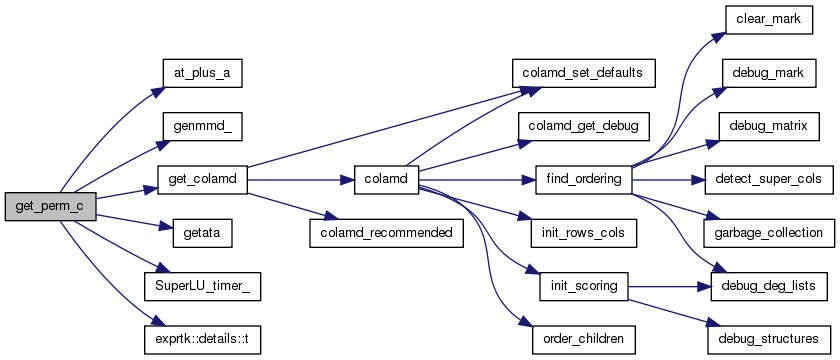
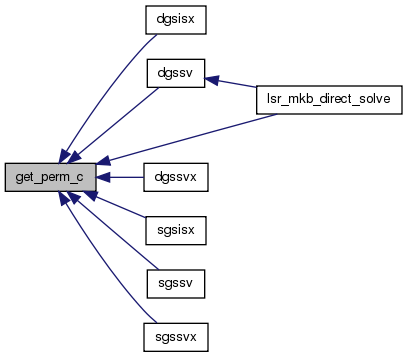
| void getata | ( | const int | m, | |
| const int | n, | |||
| const int | nz, | |||
| int * | colptr, | |||
| int * | rowind, | |||
| int * | atanz, | |||
| int ** | ata_colptr, | |||
| int ** | ata_rowind | |||
| ) |
Purpose =======
Form the structure of A'*A. A is an m-by-n matrix in column oriented format represented by (colptr, rowind). The output A'*A is in column oriented format (symmetrically, also row oriented), represented by (ata_colptr, ata_rowind).
This routine is modified from GETATA routine by Tim Davis.
The complexity of this algorithm is: SUM_{i=1,m} r(i)^2,
i.e., the sum of the square of the row counts. Questions
=========
o Do I need to withhold the *dense* rows?
o How do I know the number of nonzeros in A'*A?
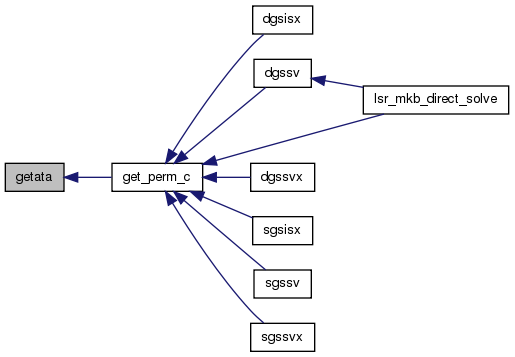
 1.6.1
1.6.1